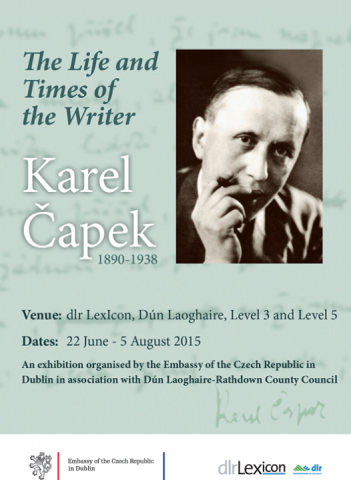The Life and Times of the writer Karel Čapek (1890 – 1938).

Karel Čapek (1890 – 1938) was a major literary figure of the early twentieth century. Writer, playwright, journalist and philosopher, he was the author of utopian novels, short detective stories, utopian-fantastic plays, travel feuilletons, essays and children’s books. He is considered the founder figure of modern science fiction for works such as War with the Newts and he invented the word ‘robot’ for his play R.U.R. (Rossum’s Universal Robots).
Apart from his science fiction work, he wrote a number of political works reflecting the troubled times he lived through and according to Ivan Klíma, Čapek’s work became a symbol of anti-ideological thinking, tolerance and democratic values. He was ‘a man who defended man against any manipulation in the middle of a chaotic, insane epoch that was paving the way for the worst bloodshed in human history’ (Klíma). Čapek helped to create the Czechoslovak PEN Club and fought for free expression. He travelled widely during the 20s and 30s, making his own illustrations for his travel books and he was a close friend of Tomás Garrigue Masaryk, the first President of the Czechoslovak Republic. If it hadn’t been for his early death from pneumonia, he would not have survived the Nazi era. His legacy since World War 2 is well established.
This exhibition includes 20 panels about Karel Čapek on Level 3 and a complete set of his books in English and in Czech on Level 5, courtesy of The Karel Čapek Memorial in the Czech Republic.



